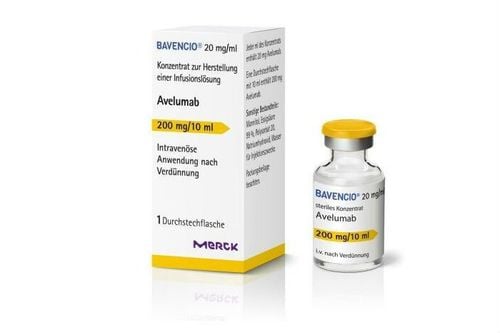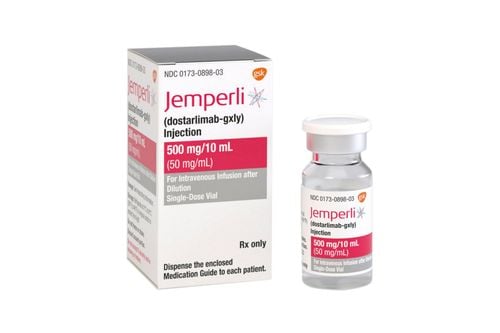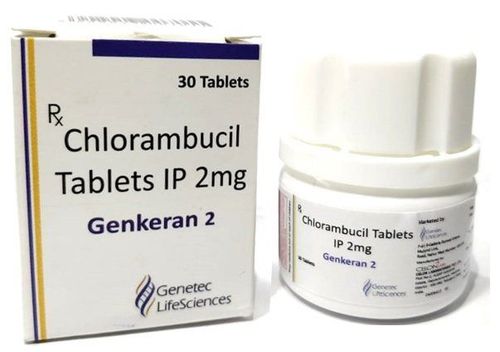This is an automatically translated article.
Necitumumab is also known as Portrazza. This medication is used to treat certain types of non-small cell lung cancer. Necitumumab is often used in combination with other cancer medicines.
1. What is Necitumumab?
Necitumumab is also known as Portrazza. Necitumumab is a monoclonal antibody that blocks a certain protein in the body that can affect tumor cell growth.Mechanism of action: Monoclonal antibodies are created in the laboratory to bind to targets found on specific types of cancer cells in the body. The antibody stimulates the immune system to attack the cell it is attached to, resulting in the immune system killing the cell.
These antibodies can have a variety of modes of action, including stimulating the immune system to destroy cells, stopping cell growth, or other functions necessary for cell growth. cell. Necitumumab binds specifically to the epidermal growth factor receptor (EGFR). This can help protect healthy cells from damage.
Uses of Necitumumab: Necitumumab injection is used in combination with Gemcitabine and Cisplatin to treat non-squamous cell lung cancer that has spread. It is also often used in combination with other cancer drugs. Necitumumab may also be used for purposes not listed in this medication guide.
2. How to use Necitumumab?
Necitumumab is given as an intravenous injection or intravenously through an IV. This medication needs to be given slowly intravenously and may take at least 1 hour to complete. You may experience an infusion reaction including fever, chills, or trouble breathing. If you notice any changes in how you feel during the infusion, let your nurse know right away. Necitumumab may cause your electrolytes to be out of balance. This can lead to serious cardiovascular problems, including cardiac arrest. Your doctor will order regular checkups and blood tests to check your electrolytes (calcium, potassium, and magnesium). Your doctor may recommend mineral supplements to keep your electrolytes from getting too low. You need to follow your doctor's instructions very carefully. Necitumumab can have long-lasting effects on your body. You may need regular medical checkups and evaluations for at least 8 weeks after you stop using this medicine. Persons with a history of related infusion-related reactions to previous infusions should receive medication to prevent reactions to future doses. The infusion may be given more slowly if you are having a reaction to the infusion.
3. Undesirable effects of drugs
There are several things you can do to control the side effects of Necitumumab. Here are some of the most common or important side effects:
3.1. Blood clot formation, heart attack and stroke Necitumumab may increase your risk of blood clot formation, stroke, and heart attack. Warning symptoms of a blood clot may include: swelling, redness, or pain in the extremities, pain or pressure in the chest, pain in the arm, back, neck or jaw, difficulty breathing, numbness or weakness on one side physical, difficulty speaking, confusion or mental state changes. If you experience any of these symptoms, you should contact your doctor immediately or go to the nearest medical facility.
3.2. Changes in electrolytes Electrolytes are minerals in your body that have many functions including regulating the amount of water in your body, blood acid levels, and controlling muscle function. Necitumumab may affect the electrolyte levels in your body. The most common change is a decrease in the amount of magnesium in your body. Hypokalemia occurred beginning approximately 6 weeks after initiation of treatment. You may also have low calcium (hypocalcemia) and low potassium (hypokalemia). These changes can cause serious heart problems, including cardiac arrest (cardiac arrest).
Before each dose of necrolysis and for at least 8 weeks after the end of treatment, your doctor will order to check your electrolyte levels. You can take electrolyte supplements orally or intravenously (directly into a vein) to regulate electrolyte levels. It is important to use these products as directed by your doctor.
3.3. Nail and skin changes Necitumumab has some unwanted nail and skin effects that you may experience. You may develop a rash similar to acne, but it is not and should not be treated with acne medications. The rash may be red, swollen, scaly, dry, and feel painful. You may also feel your skin is very dry, which may crack, itch, or become flaky or scaly. The rash usually begins within the first week of treatment, but can appear at any time during treatment.
Methods to improve your skin include:
Use thick, alcohol-free lotions or emollients on your skin at least twice a day, including right after bathing. Avoid direct sun exposure, as it can worsen the rash or cause severe burns. Use sunscreens with an SPF of 30 or higher and wear a hat and sunglasses to protect your head and face from the sun. Shower with cool or warm water, not hot, and pat skin dry. Use soaps, lotions, and laundry detergents that do not contain alcohol, perfumes, or dyes. Wear gloves for washing dishes or doing housework or gardening. Drink plenty of water and try not to scratch or rub your skin. Notify your treating physician if you develop a rash, as they may be able to offer suggestions for rash control and/or prescribe topical medications to apply to the rash or oral medications. If you experience peeling or blistering of your skin, tell your doctor immediately. 3.4. Paronychia While using Necitumumab, you may develop inflammation of the skin around the nail beds/cuticles of your toes or fingers, which is called Paronychia. Paronychia is characterized by:
Red, swollen, or pus-filled inflammation of the skin. Nails may grow "ripples" or fall off. Cuts or cracks that look like small paper cuts in the skin of your toes, fingers, or knuckles. These side effects may appear several months after starting treatment, but may persist for many months after stopping treatment. To reduce the condition, you should follow the same recommendations for your skin (above). At the same time, you can apply some more suggestions as follows:
Do not bite your nails, fingernails or cut cuticles. Keep your fingernails and toenails clean and dry. You can use nail polish, but do not wear fake nails (gel, acrylic, topcoat). Inform your treating doctor if any of your nails fall out or you develop any of these or other skin abnormalities.
4. Effects of Necitumumab on fertility
Exposure to Necitumumab to an unborn baby can cause birth defects, so you should not become pregnant or father a child while taking this medicine. Using birth control or having safe sex is necessary during treatment and for at least 3 months after your last dose. Even if your period stops or you believe you are not producing sperm, you may still be able to conceive and conceive. You should not breast-feed while using Necitumumab and for at least 3 months after your last dose. In short, the drug Necitumumab, also known as the drug Portrazza. This medication is used to treat certain types of non-small cell lung cancer. Necitumumab is often used in combination with other cancer medicines. Patients need to strictly follow the instructions to achieve effective results and avoid unwanted side effects.
Follow Vinmec International General Hospital website to get more health, nutrition and beauty information to protect the health of yourself and your loved ones in your family.
Please dial HOTLINE for more information or register for an appointment HERE. Download MyVinmec app to make appointments faster and to manage your bookings easily.













